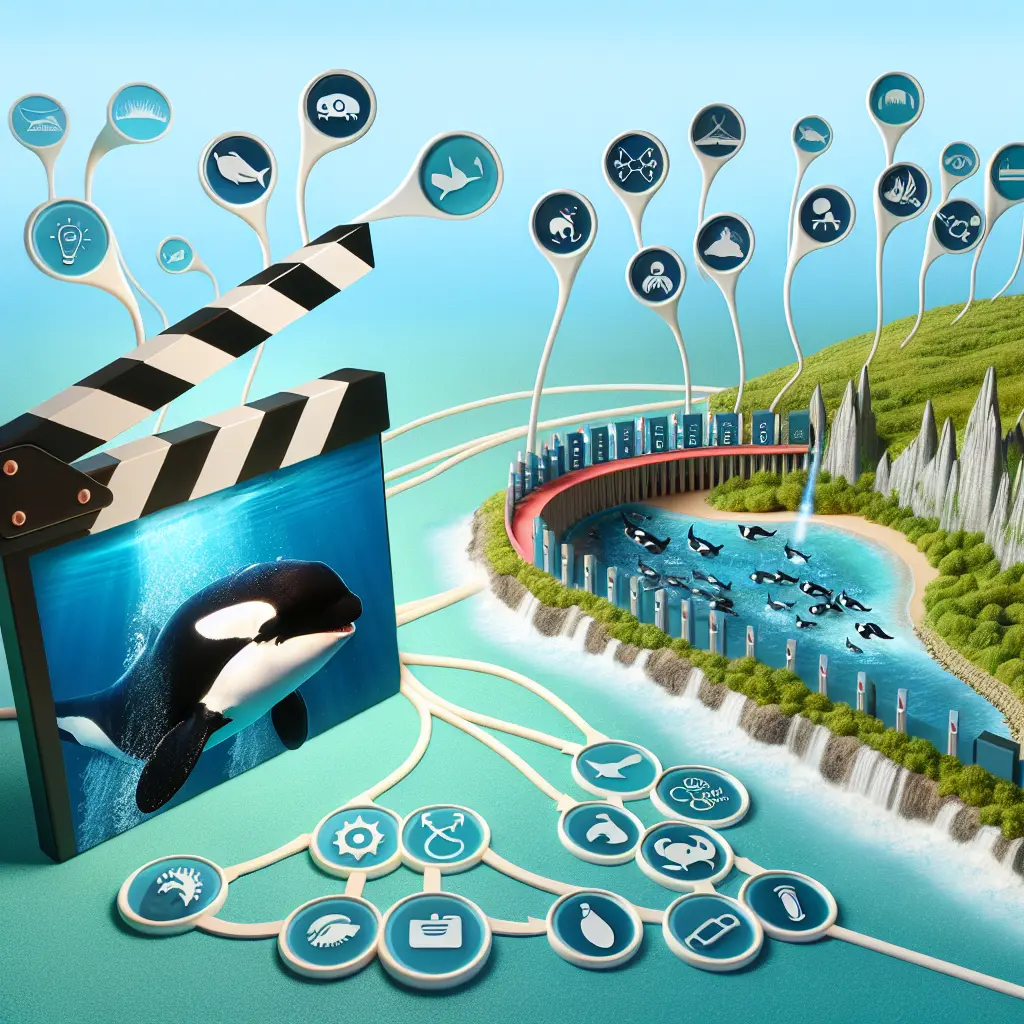In recent years, the "Blackfish" documentary has emerged as a pivotal force in reshaping marine park policies, sparking global discourse on orca captivity and the ethical treatment of marine animals. This compelling documentary cast a spotlight on the controversial practices within SeaWorld, leading to significant SeaWorld policy changes that have reverberated throughout the marine conservation community. The Blackfish effect has been profound, with heightened public awareness fueling the animal rights movement and prompting a reevaluation of how captive orcas and other marine mammals are treated.
The release of the "Blackfish" documentary marked a turning point in the history of marine parks and the treatment of captive marine mammals, particularly orcas. Its impact has reverberated across the globe, sparking significant changes in marine park policies and igniting a broader conversation on the ethical treatment of animals. In this section, we delve into how the Blackfish effect has shaped marine park regulations, influenced public perception, and spurred the animal rights movement.
The "Blackfish" documentary, released in 2013, shone a harsh light on the practices at SeaWorld and other marine parks, particularly focusing on the psychological and physical harm inflicted upon captive orcas. This eye-opening exposé resonated with audiences worldwide, leading to increased public awareness and outrage over orca captivity. The documentary's powerful narrative fueled the animal rights movement, prompting a reevaluation of marine animal welfare standards.
Public Awareness and the Animal Rights Movement One of the most significant effects of Blackfish was its ability to mobilize public opinion. The documentary's widespread reach and emotional impact led to heightened scrutiny of marine parks and their treatment of animals. This growing public awareness played a crucial role in advancing the animal rights movement, empowering advocacy groups to intensify their efforts for orca rehabilitation and improved welfare standards for captive marine mammals.
SeaWorld's Response: A Shift Towards Reform In response to the controversy stirred by Blackfish, SeaWorld implemented a series of policy changes aimed at addressing public concerns and improving animal welfare. These included ending the orca breeding program and phasing out theatrical orca shows in favor of more educational presentations. SeaWorld's policy changes set a precedent within the industry, encouraging other marine parks to reassess their practices and align with more humane standards.
Broader Implications for Marine Conservation Efforts
The impact of Blackfish extends beyond policy changes at individual parks; it has also influenced broader marine conservation efforts. By highlighting the plight of captive orcas, the documentary catalyzed discussions on ocean conservation and the importance of protecting natural habitats for marine life.
The Role of Advocacy Groups Animal advocacy groups have been instrumental in capitalizing on the momentum generated by Blackfish. Organizations such as PETA and the Whale and Dolphin Conservation Society have intensified their campaigns for ethical treatment of animals held in captivity. These groups have successfully lobbied for legislation aimed at banning or restricting orca captivity in several jurisdictions, further demonstrating Blackfish's lasting legacy on marine park regulations.
In recent years, notable victories include California's enactment of the Orca Protection Act, which bans orca breeding and performance shows within the state. Such legislative changes highlight how public pressure, fueled by documentaries like Blackfish, can lead to tangible improvements in marine animal welfare.
International Perspectives: Global Shifts Inspired by Blackfish While Blackfish primarily focused on SeaWorld and U.S.-based parks, its influence has been felt internationally. Countries such as Canada have enacted laws prohibiting whale and dolphin captivity, citing ethical concerns similar to those raised by Blackfish. These global shifts underscore a growing consensus on the need for humane treatment of marine animals.
The Ongoing Debate: Ethical Treatment of Captive Orcas
Despite significant progress spurred by Blackfish, debates surrounding the ethical treatment of captive orcas persist. Critics argue that more needs to be done to ensure the long-term welfare of these animals, while proponents emphasize the educational value and conservation efforts made possible by marine parks.
Challenges Ahead As we look to the future, challenges remain in balancing public interest with animal welfare concerns. How can marine parks continue to educate visitors while respecting the rights and needs of captive animals? This question lies at the heart of ongoing discussions within the marine conservation community.
Exploring Alternatives: Sanctuaries and Rehabilitation One promising avenue is the development of sea sanctuaries, where former captive orcas can live in a more natural environment while still receiving necessary care. Such initiatives represent a middle ground between outright bans on captivity and traditional marine park models. They offer a glimpse into potential future directions for facilities striving to adapt in light of changing public expectations.
Conclusion: A Legacy of Awareness and Change The Blackfish documentary has left an indelible mark on marine park policies and practices. Its influence continues to shape public discourse on animal rights and inspire reform across the globe. As we reflect on its impact, it is clear that Blackfish has not only altered perceptions of captive orcas but also set a new standard for ethical treatment within the industry.
Through ongoing advocacy efforts, legislative victories, and innovative approaches to conservation, the legacy of Blackfish endures. It challenges us to rethink our relationship with marine life and strive for a future where animals are treated with dignity and respect.
For further reading on SeaWorld's policy changes and their implications, see this detailed report by National Geographic. Additionally, learn about global legislative efforts inspired by Blackfish through this comprehensive overview by The Guardian.









Leave a Comment